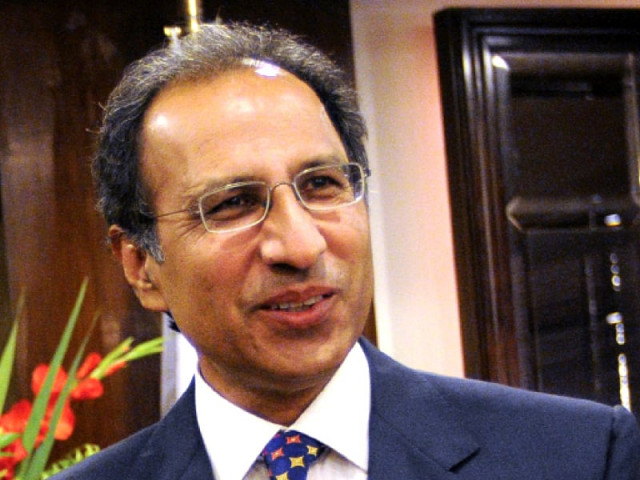PTI govt seeks to balance new taxes, relief
Dr Abdul Hafeez Shaikh suggests abolition of low-revenue yielding tax codes in next budget

Dr Abdul Hafeez Shaikh. PHOTO: AFP
The Federal Board of Revenue (FBR) also proposed to slap wealth tax on movable assets but no final decision was taken by the Prime Minister’s Adviser on Finance, Dr Abdul Hafeez Shaikh.
In its first formal presentation on the budget 2020-21, the FBR shared details of additional taxation measures that it had shortlisted for imposition from July. It also shared some relief measures to strike a balance.
The proceedings of the meeting made it clear that the government did not have any intentions to present a tax-free budget, instead the budget for fiscal year 2020-21 would carry taxation measures along with relief measures.
Dr Shaikh suggested abolition of low-revenue yielding tax codes and asked the tax machinery to focus on few measures that had more revenue impact, a senior Finance Ministry official said after the late-night meeting.
Although the FBR tried to present a balanced budget, carrying both additional taxes and relief measures, but in the eyes of the finance adviser, the taxation measures lacked a direction and seemed more of a “business as usual”, the finance ministry officials said.
Former finance secretary Dr Waqar Masood also attended the meeting who advised the government to introduce taxation where it was needed. He also suggested that unnecessary relief should not be given, saying that the government should provide relied where it was needed, a source added.
Shaikh asked the FBR team not to use the International Monetary Fund (IMF) as a pretext to subvert reforms that the government wanted to introduce to provide some solace to the businesses, one of the participants of the meeting told The Express Tribune.
The FBR’s budget proposals were more of a tinkering with the existing tax codes, as it either proposed to increase tax rates or suggested to marginally reduce them, claimed another official.
However, Shaikh directed the FBR to conduct a sensitivity analysis where the impact of reduction in taxes was shown. He also asked the FBR to analyse the total numbers of taxes being paid by the taxpayers and the revenue generation of these measures.
The government plans to give Rs5.1 trillion tax collection target to the FBR, which requires about 31% growth over this year’s expected collection of Rs3.9 trillion. But the budget proposals that the FBR presented lacked the direction and the intent of strike a balance between new measures and relief.
The Pakistan Tehreek-e-Insaf (PTI) government will unveil its third budget at a time when the economy is severely affected by the outbreak of novel coronavirus. It faces a catch-22 situation of getting the stalled IMF programme revived by presenting a budget to the IMF’s satisfaction and providing some relief to the people, if possible.
The finance ministry has already informed Prime Minister Imran Khan that in order to revive the stalled IMF programme, Pakistan will have to continue implementation of economic stabilisation policies in the next year too.
The FBR’s taxation proposals were largely aimed at enhancing next year’s collection on the back of additional taxation measures. Shaikh was of the view that heavy taxes might kill businesses, therefore, the FBR should come up with measures that gave the impression of a balanced budget at the time of crisis, the sources said.
He asked the FBR to suggest measures that may reduce the numbers of taxes but at the same time did not hurt the government’s revenues. The National Tariff Commission also proposed a reduction in import tariffs to simply the customs regime.



















COMMENTS
Comments are moderated and generally will be posted if they are on-topic and not abusive.
For more information, please see our Comments FAQ